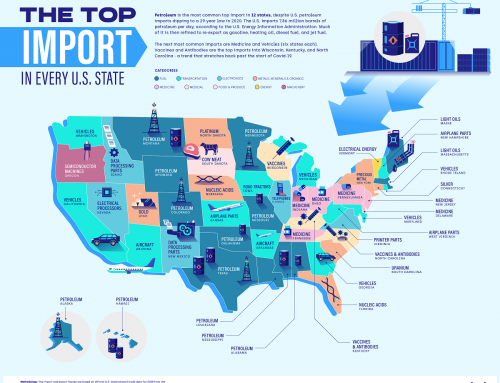If you’ve done any kind of importing to the U.S., chances are that you’ve come across these two prominent industry terms: anti-dumping duty and countervailing duty. They’re two common terms that pop up everywhere if you’ve done any kind of work doing importing/exporting documentation.
The reality of the industry is that you will come across a lot of legal jargon that dictates how you move commercial goods into the nation. Getting a handle on this language is integral to your success as an importer, as any kind of legal misstep can cause costly delays, fees, and even seizures. Set backs like this can be pretty afflictive for businesses, especially new businesses just starting out.
That being said, it’s certainly in your best interest to read up on common legal terms that you come across in the importing/exporting industry. That’s why we’re covering these terms — anti-dumping duty and countervailing duty — today!

So, let’s get started… Keep on reading to learn more:
What is anti-dumping?
Dumping is referred to when foreign manufacturers sell goods in the U.S. at less than value.
What is countervailing?
Countervailing occurs when a government from another country provides subsidies and/or tax benefits for manufacturers in order for them to sell goods at a cheaper price than U.S. manufacturers.
As you can imagine, this is taken quite seriously by the U.S. government and CBP as they both contribute to foreign undercutting of standard U.S. manufacturing prices. In short, these regulations are put in place and enforced in order to protect the U.S. manufacturing industry.
“Good regulation should be conducive to business and customer protection.”
Jamie Dimon
Further breakdown on anti-dumping and countervailing duty…
As stipulated under the Tariff Act of 1930, American industries have the right to petition the government for assistance from imported goods being sold in the U.S. at less than a predetermined fair value (i.e. dumped!).
The U.S. Department of Commerce is the government agency that determines the prevalence of dumping. The USITC then verifies whether or not there is a real, tangible threat to U.S. manufacturers due to dumping or countervailing imported goods.
Potential infractions are investigated under Title VII of the Civil Rights Act.
“Regulation is necessary, especially in a sector which exposes countries and people to a risk.”
Christine Lagrande
As stated on the CBP website, they explain that when the Department of Commerce finds that certain imported goods are being sold in the U.S. at an unfairly low or subsidized price, CBP will be responsible for collecting Anti-Dumping and Countervailing Duties in order to level the playing field for U.S.

This may seem all very “doom-and-gloom” as there are a lot of rules and regulations to be mindful of during the importation process. However, working with a customs broker — whose job is to stay apprised of the regulatory framework — removes most of the burden off of the importer’s hands. Partnering with the right customs broker for you will save you time and money, allowing you to focus on the other important parts of your business.
Check out our recent blog post: How to Evaluate Customs Brokers.
A good customs broker will treat your relationship as a partnership. They will use their knowledge of applicable rules and regulations to get your imported goods into the hands of consumers quickly and efficiently. They’ll help you navigate the red tape and file documentation on your behalf. To get the conversation started with our team of experts, click here.



